If you take a drive through rural Uganda, you’ll notice neat stacks of white sacks piled closely to the roadside. Capped with leaves and husks instead of tied so that they can be filled to the literal brim, the bags contain the energy source that almost 90% of Ugandan households rely upon for cooking—charcoal.[1]
With global crude oil prices continuing on their upward march and three quarters of Ugandans still without access to electricity, the reality is that almost every household in the country uses either charcoal or firewood as its energy source to feed itself. The result of this nearly universal demand for wood-based energy is increased logging—both legally and illegally—across Uganda.
The environment has taken the toll, and the country is literally burning through its natural resources to meet its population’s needs. It is estimated that more than half of Uganda’s forest cover has been lost in the past 30 years due to charcoal production,[2] and demand shows no signs of slowing. Forest cover now stands at just 8%, and Uganda’s Environment Minister has warned that if conservation is not embraced, the nation will suffer the effects of drought, floods, and landslides.[3] In a country where over three quarters of people rely upon the land for their livelihood, the portent rings loud.
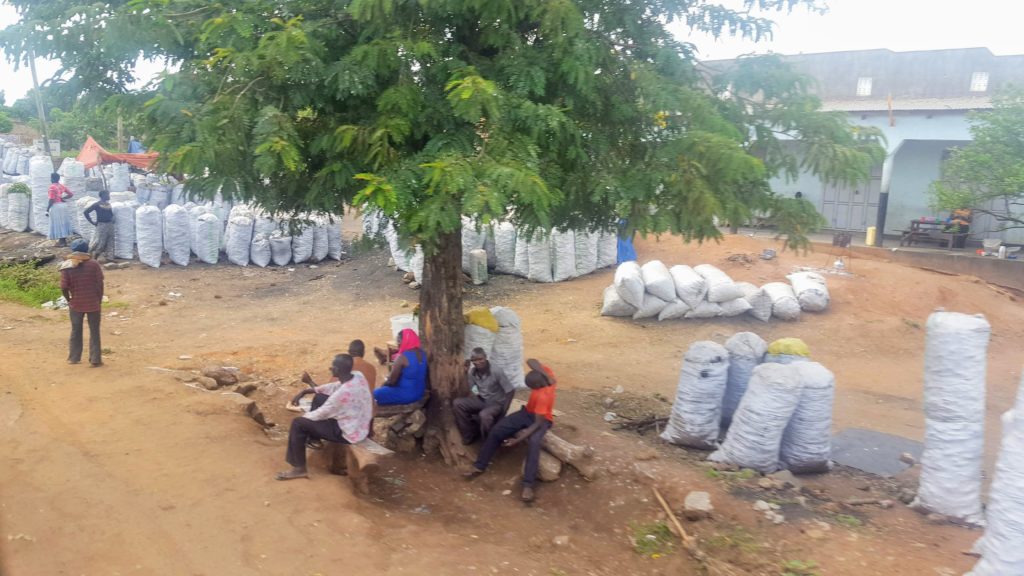
Finding the Pressure Point for Systems-Level Change
The Center for Eco-Learning Uganda (CEL-U), launched by five Building Tomorrow Fellows in Kiboga and Kyankwanzi District, senses the urgency and is leveraging rural primary schools as epicentres for change surrounding environmental conservation. It was registered as a non-profit organization in August 2018 and has since been driving its mission of advancing conservation and sustainable practices forward through the promotion of interactive environmental education programs at primary schools.
“We Building Tomorrow Fellows saw ongoing environmental degradation every day in our communities, especially from charcoal burning,” says Patrick Kaboyo, CEL-U’s Program Manager. “We decided to do something about it by starting locally.”
In deciding where to begin, they agreed the best place to start would be at schools. In Uganda, schools are hubs for the community. They are places where the lives of children, parents, teachers, and government officials intersect. So if you want to make a change in mindsets, practices, and even policy surrounding an issue, it’s a great leverage point to start.
In this same vein, the Fellows knew creating systemic change surrounding environmental conservation would be easier by working with children.
As Patrick explains, “If you work in schools, sensitization about important issues will be a lot easier. Older people tend to already be set in their ways, but the younger generation has a more flexible mindset and is still forming its ideas and habits.”
Green Schools
In designing its approach, CEL-U wanted to create a network of “green schools” that serve as models for sustainable environmental practices and behaviors from which the surrounding communities can learn, as well as incubators for young conservationists who espouse the tenets of sustainable development.
“We want green schools,” says Patrick emphatically. “And we want an environmental education program that brings the science that children study in books to life.”
In other words, the “green school” concept does not just encompass physical practices and examples, but also “green,” forward-thinking mindsets that are cognizant of the need for sustainable management of natural resources.
To follow through on its vision of a network of green schools, CEL-U set up or re-energized environmental education clubs at 20 primary schools across Kiboga and Kyankwanzi District. The clubs—which meet to discuss important environmental issues, take field trips to observe natural phenomena, and design environmental initiatives like tree planting at their schools—are student-led, and its members serve as ambassadors to the rest of the school and communities in delivering important environmental information and practices. By empowering a young task force to design and look after each green school, such as through the creation of green spaces in the compound and the promotion of values of stewardship, CEL-U is using environmental clubs as an entry point to wider community change.
“From the school, we can approach other people who want to make their homes and communities ‘green’ as well,” explains Patrick.
Seeing is believing, and they are first walking the walk so that they can talk the talk.
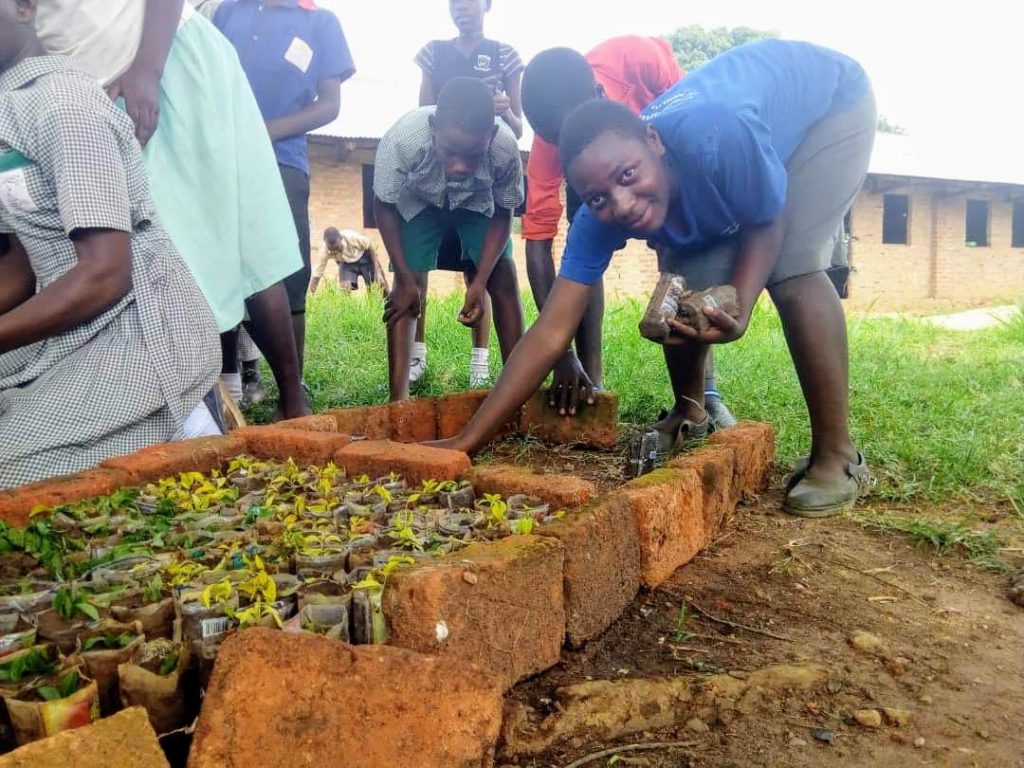
Bringing Science to Life
One of the main motivators behind its environmental education approach is a desire to make science and conservation more relevant to the lives of children by bringing it off the page and into children’s hands and memories.
“Uganda is one of the greenest countries in Africa. Its tourism sector brings in almost $1.9 billion from visitors coming to look at our lush landscapes, biodiversity, and nature. So why are we only reading about the environment in textbooks, when we can go out and experience it?” says Patrick.
“With our environmental clubs, we’ll take them to a wetland, for example, and show them what others have only been telling them in books. We’ll grow in them appreciation for their local environment by teaching them the names of the tree species in their school compound.”
This hands-on approach to education builds upon the national environmental education curriculum to give students a more dynamic learning experience.
The change, as participation in its environmental education trainings and attitude of the local government has shown, is welcome.
“On paper, everything looks fine. The textbooks and curriculum are quite comprehensive and even advocate for sustainable practices,” says Patrick. “But it’s the practice that’s lacking.”
By promoting interactive and active learning surrounding the environment and conservation, CEL-U is bringing to light the mismatch between what is practiced and what is preached in the classroom and taking concrete steps to align ideals and actions.
What’s more, it is leveraging and capitalizing on already existent infrastructure and community relationships to advance healthy ecosystems and lives. The “Center” for Eco-Learning is, in effect, many “centers” (plural) for eco-learning. They are schools as hubs for environmental education and change.
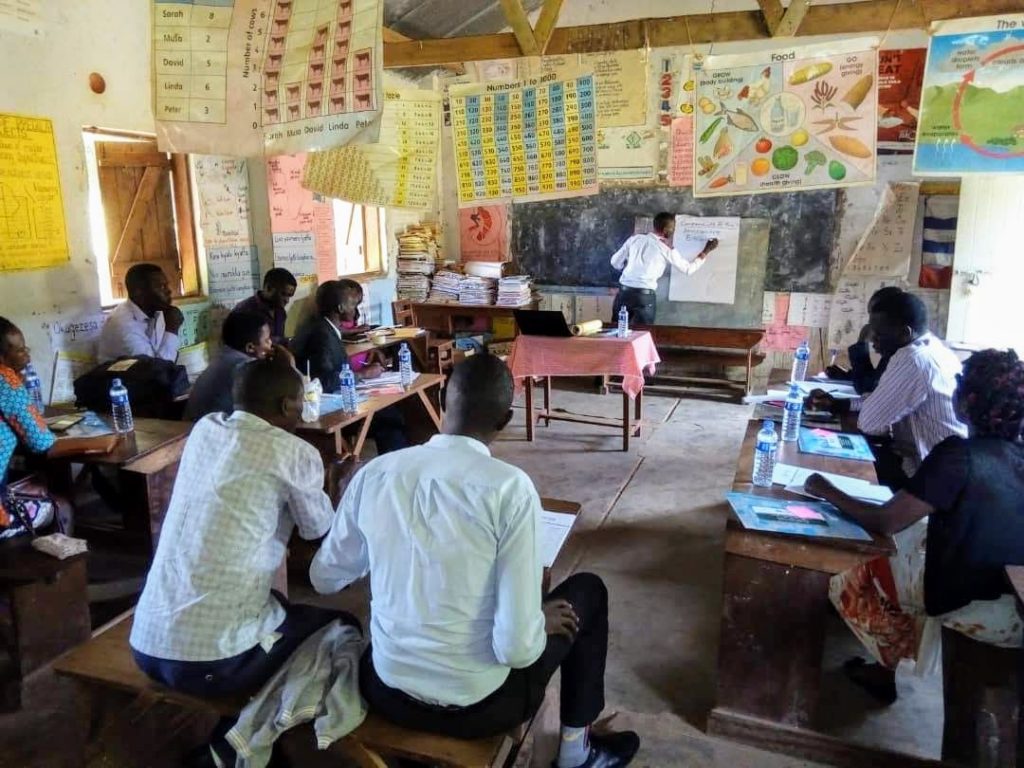
The Way Forward
Moving forward, CEL-U hopes to expand its current network of green schools and environmental clubs that already boast over 400 members to even more communities in 2019 and eventually break into the promotion of and advocacy surrounding clean energy and the Sustainable Development Goals.
In the meantime, however, CEL-U is working closely with district officials in both Kiboga and Kyankwanzi to expand its mission and vision to new areas, including by getting the word out about its activities and approach through a district-level exhibition fair this World Environment Day.
“I really hope that in 5 years, CEL-U’s network of green schools has moved beyond Kyankwanzi and Kiboga to make an impact across the country,” says Patrick.
“And we really have to thank Building Tomorrow for getting us off our feet. Building Tomorrow is our father. From the social entrepreneurship trainings with Finding XY that helped us to refine our ideas in a better way to the guidance and platform that the administration has given us, CEL-U came from Building Tomorrow, and we are grateful for that.”
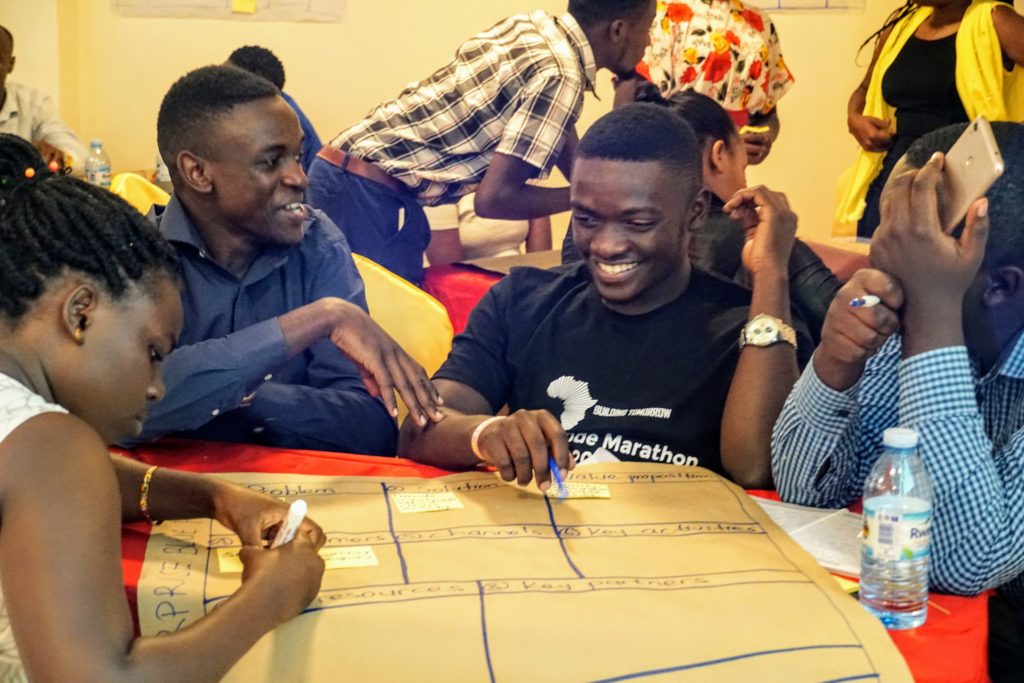
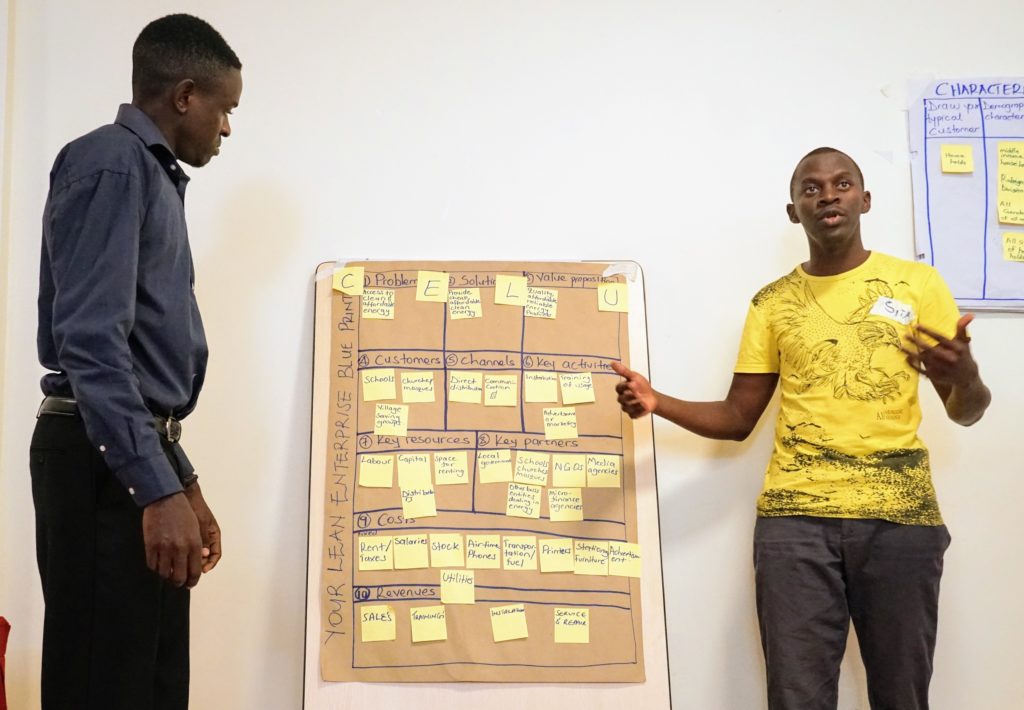
The Center for Eco-Learning is one many social enterprises created by Building Tomorrow Fellows working to advance our Thriving Schools Program. To find out more about what Building Tomorrow Fellows do and the changes they are creating in their communities, click here.
[1] 2016/2017 Uganda National Household Survey
[2] Obua, Joseph & Agea, Jacob & Jones Ogwal, Joseph. (2010). Status of forests in Uganda. African Journal of Ecology. 48. 853 – 859. 10.1111/j.1365-2028.2010.01217.x.
[3] Manishimwe, W. (2019). Uganda’s forest cover depleted to 8%, environment minister warns encroachers. Retrieved from https://www.newvision.co.ug/new_vision/news/1476085/uganda-forest-cover-depleted-environment-minister-warns-encroachers

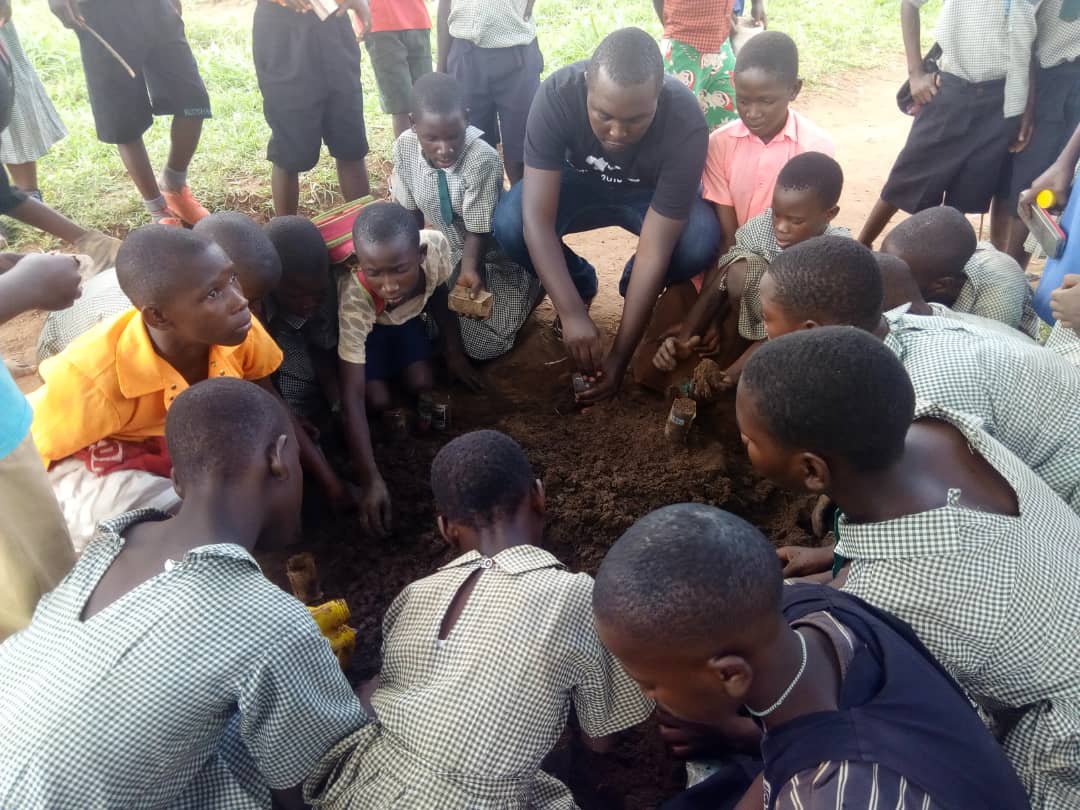
Follow Us on Social Media